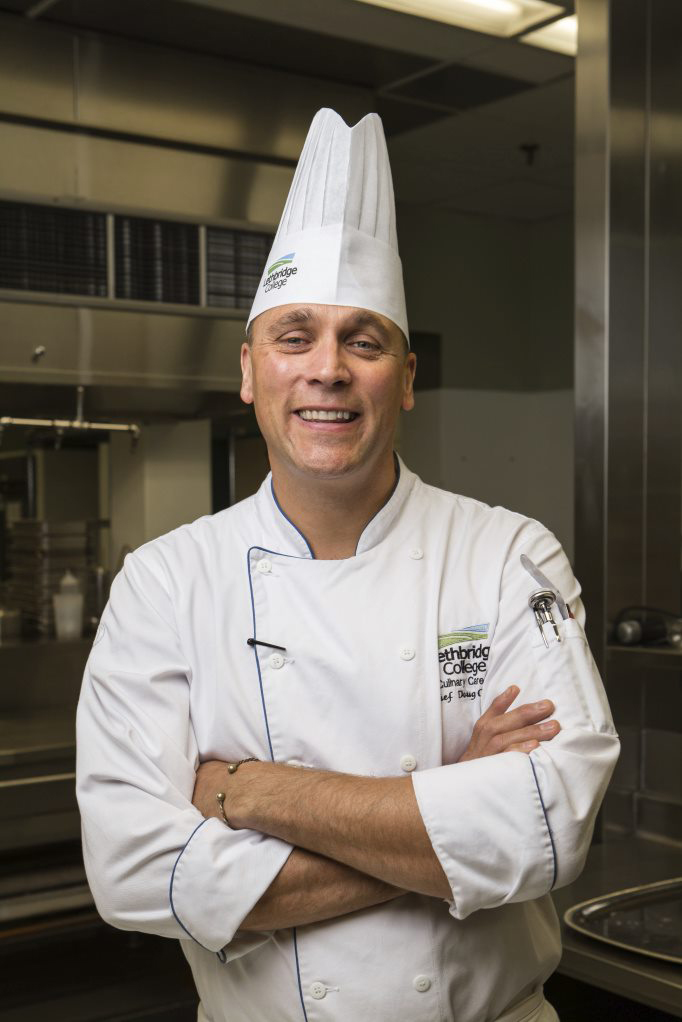October is Disability Employment Awareness Month (DEAM), which is organized to acknowledge and promote the contributions and inclusion of people with disabilities in the workplace.
 While the field of culinary arts is known for being exciting, fast-paced and rewarding, for people with disabilities, the path to a career through the kitchen can be littered with obstacles.
While the field of culinary arts is known for being exciting, fast-paced and rewarding, for people with disabilities, the path to a career through the kitchen can be littered with obstacles.
That’s why Chef Doug Overes, chair of the School of Culinary Arts, and his team have made it part of their mission to provide opportunities and accommodations for students with disabilities so that they, too, can get a taste of what the culinary world has to offer.
Overes says that it starts with identifying students with challenges that are affecting their ability to learn, and then finding resources and solutions, including referring students to the supports at Accessibility Services. That sounds simple enough, but understanding the issue can itself be a challenge.
“We had a student a few years ago who was really struggling,” he recalls. “We had interviews with her and her parents, and no one could understand what was happening. But eventually we found out she had a condition called Meares-Irlen Syndrome, which meant she couldn't read white paper with black print. We ended up printing everything in blue, her marks went up 30 per cent and she ended up getting her journeyman certificate.”
In addition to working to accommodate students in the regular Culinary Careers stream, Overes says the program has had a long-standing partnership with Inclusion Alberta, a non-profit organization that works with post-secondary institutions across the province to provide students with developmental disabilities opportunities to participate in regular programs of study and campus life.
“Every year we bring in an individual with developmental needs, and we run them through the course of our year academically and try to give them some tools, life experience and relationship-building skills,” says Overes. “It shows good community, it shows good mentorship, and it shows that you're willing to take a chance on an individual who might otherwise be left to the wind.”
That relationship doesn’t end when the students finish their stints in the college’s kitchens.
“I’ve got a handful of chefs in the community who we’ve built incredible relationships with, who are nurturing by nature, and who we work with to help give some of these individuals who come to us through Inclusion Alberta a shot,” he says. “Our goal is to try and get them out into the workforce to fill a position, because if they can hold down a job as, say, a prep cook, work five or six days a week, be a part of a brigade and have a good experience, then I think we’ve done our job.”
For Overes, the ultimate goal for any student is a career in the industry, even if that means going the extra mile for students with disabilities. He encourages other programs to look beyond any inconveniences to see the benefits of providing accommodations to students with special needs.
“It’s about thinking bigger than yourself,” he says. “These students are just as dedicated, motivated and love being involved – so if we can give them the skillset to set them up, the better it is for them, and I know my team feels the same way.”